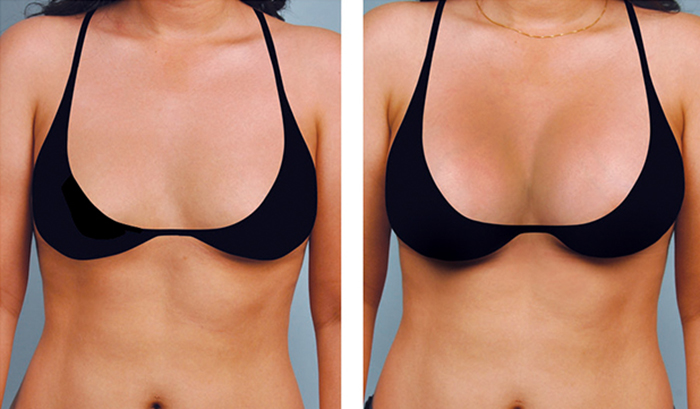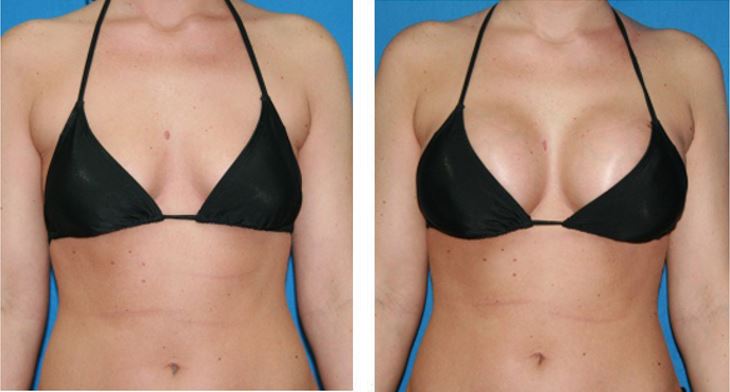FAQs about Breast Augmentation Surgery
- Who should perform my breast augmentation surgery?
The surgeon most qualified to perform breast augmentation surgeries are certified Plastic Surgeons. It is important to get information regarding the surgeon’s training. Can the surgeon perform this procedure in a major hospital in your city? What do other patients say about the surgeon’s ability to communicate and his level of care post-operatively? What I try to emphasize most to anyone considering breast augmentation is that you TRUST your plastic surgeon, and that you and your plastic surgeon have EXACTLY the same idea of how you want your breasts to turn out. Finally, you must feel they can accomplish the result you desire; the result that will make you happy.

Is it necessary to wait until after having children before having breast augmentation surgery? No, it is a matter of choice for each woman. More than half of patients perform the surgery before having children and the majority of them have no problems breast feeding afterwards. The incisions used are small and the surgeon attempts to minimize the amount of disruption of the glands to the nipple/ areola. The underlying breast implant does not harm the breast fed baby in any way.
- Who is too old to get a breast augmentation?
Breast augmentation can be performed on 18 years old and older, and older. You are NEVER too old to improve the appearance of your breasts
- If I get pregnant will my breast implants have an effect on me?
It can be feasible for breast implants to have a negative effect in regards to breast-feeding. A postpartum lift may be needed since pregnancy can change the look of augmented breasts.
- What are the risks concerning breast augmentation and mammograms?
When a woman has breast implants there is generally a partially obstructed view of some breast tissue and, therefore, there is a theoretical possibility of interference with breast cancer detection. In practice, however, women with implants do not have a higher chance of a missed cancer detection.
Women with breast implants should have their mammograms performed by a mammography technologist who is experienced in performing mammograms on women with breast implants. Be sure to tell your technologist that you have breast implants so that they will know to take additional views of the breast and additional care with the implants. With or without breast implants, the major reasons for non-detection are either not performing self-examination, or not having regular mammograms or denial.
- What makes up implants and what different styles are there?
Nowadays, implants typically contain a silicone shell and are generally full of a saline solution. Only in particular cases are silicone gel-filled implants used as they are restricted by the US FDA. Styles of implants include difference in size, shape and consistency. The implants shape can be contoured like a tear-drop or round. The consistency can be silky or grainy. Which style is best suited for you depends on personal situation.
- Where are the likely sites of the incisions and other sites?
The many possible sites incisions are put are: periareolar (around the nipple); inframammary (within the crease beneath the breast); or axillary (below the armpit). Dependin on a few factors, your incisions will be determined with the help from your surgeon.

- How do I decide the size of the implants?
The size that a patient decides to achieve is a very personal decision. Many a time the patient wishes to achieve a “natural look” to simply improve the proportionality of the upper and lower body. Some patients, however, want a “round” look. For these patients a “natural look” is not a priority and they are not concerned if other people know that they have had a breast augmentation. There are a lot of things to consider when thinking of implant size and because of that, your surgeon is there to help you make the right choice.
- What are the dangers of getting extremely big implants?
When deciding on the extent of the implant, it is imperative that you consider what amount your own body can make room for. Those that do not have tissue that exists and opt for an extremely big implant may have results that can effortlessly be noticed and felt through the skin. Also, breasts that have very big implants can become droopy too early just like naturally big breasts do.
- How long do implants last?
Not meant to last forever, implants may over time need surgery to remove and/ or be replaced. They can give way any given moment even though there are people who consider they have a life span of about 10 years. There are a few implant manufacturers that give some form of guarantee that could consist of replacing the implant if required.


